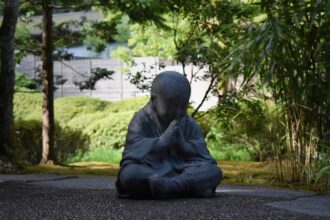Trauma can leave an indelible mark on both your body and mind, often manifesting in ways that are not immediately visible. When you experience a traumatic event, your brain processes the experience differently than it would a non-threatening situation. This altered processing can lead to a range of emotional and physical symptoms, including anxiety, depression, and chronic pain.
You may find yourself feeling disconnected from your body, as if you are merely a spectator in your own life. This disconnection is a common response to trauma, as your mind attempts to shield itself from the overwhelming emotions associated with the event. Moreover, the impact of trauma can extend beyond immediate reactions.
Over time, unresolved trauma can lead to long-term changes in your brain’s structure and function. You might notice heightened sensitivity to stressors or an inability to regulate your emotions effectively. This can create a cycle where the body remains in a state of alertness, making it difficult for you to relax or feel safe.
Understanding these effects is crucial for recognizing the importance of healing and the role that rest plays in your recovery journey.
Key Takeaways
- Trauma can have a profound impact on both the body and mind, leading to a range of physical and psychological symptoms.
- Hypervigilance is a common response to trauma, characterized by an increased state of alertness and sensitivity to potential threats.
- Trauma can disrupt the nervous system and lead to sleep disturbances, impacting overall well-being and mental health.
- Rest plays a crucial role in healing from trauma, allowing the body and mind to recover and restore balance.
- Slowing down after trauma can be uncomfortable, but it is an essential part of the healing process and allows for self-reflection and growth.
The Connection Between Trauma and Hypervigilance
Hypervigilance is a common response to trauma, characterized by an increased state of alertness and sensitivity to potential threats. If you have experienced trauma, you may find yourself constantly scanning your environment for danger, even in safe situations. This heightened awareness can be exhausting and may lead to feelings of anxiety or irritability.
You might feel as though you are always on edge, unable to let your guard down. This state of hypervigilance is not just a mental phenomenon; it can also manifest physically, causing tension in your muscles and contributing to fatigue. The connection between trauma and hypervigilance is deeply rooted in the body’s stress response system.
When faced with danger, your body releases stress hormones like cortisol and adrenaline, preparing you for fight or flight. However, when trauma is unresolved, this response can become chronic, leading to persistent hypervigilance. You may find it challenging to engage in everyday activities without feeling overwhelmed by anxiety or fear.
Recognizing this connection is essential for understanding how trauma affects your overall well-being and the importance of finding ways to cultivate safety and relaxation in your life.
How Trauma Affects the Nervous System and Sleep Patterns

Trauma has a profound impact on your nervous system, often leading to dysregulation that affects various aspects of your life, including sleep patterns. When you experience trauma, your autonomic nervous system can become imbalanced, resulting in difficulties with both falling asleep and staying asleep. You may find yourself plagued by racing thoughts or nightmares that prevent you from achieving restful sleep.
This lack of restorative sleep can exacerbate feelings of anxiety and depression, creating a vicious cycle that is hard to break. Additionally, the way trauma affects your sleep can vary from person to person. Some individuals may experience insomnia, while others might find themselves sleeping excessively as a means of escape.
Regardless of how it manifests, disrupted sleep patterns can hinder your ability to cope with daily stressors and negatively impact your overall health. Understanding this relationship between trauma and sleep is crucial for developing effective strategies for healing and restoring balance to your nervous system.
The Role of Rest in Healing from Trauma
| Rest Metrics | Findings |
|---|---|
| Hours of Sleep | 8-9 hours of quality sleep is recommended for healing from trauma |
| Mental Rest | Engaging in calming activities such as meditation or deep breathing |
| Physical Rest | Allowing the body to relax and recover through gentle movement or rest |
| Social Rest | Taking time away from social interactions to recharge and reflect |
| Emotional Rest | Practicing self-compassion and seeking support from trusted individuals |
Rest plays a vital role in the healing process after experiencing trauma. It allows your body and mind the opportunity to recover from the intense stress that trauma imposes. When you prioritize rest, you create space for healing by allowing your nervous system to recalibrate and return to a state of equilibrium.
This restorative process is essential for reducing symptoms of anxiety and depression that often accompany trauma. Moreover, rest is not merely about physical inactivity; it encompasses mental and emotional relaxation as well. Engaging in restorative practices such as meditation, gentle yoga, or simply spending time in nature can help you reconnect with yourself and foster a sense of safety.
By embracing rest as an integral part of your healing journey, you empower yourself to process the trauma at your own pace, ultimately leading to greater resilience and well-being.
The Discomfort of Slowing Down After Trauma
After experiencing trauma, you may find it incredibly challenging to slow down and allow yourself to rest. The discomfort associated with this process can stem from various factors, including societal pressures to remain productive or feelings of guilt for taking time for yourself. You might feel as though you should be “over” the trauma by now or that resting equates to weakness.
These beliefs can create significant internal conflict as you navigate the complexities of healing.
The stillness that comes with rest can force you to confront feelings of sadness, anger, or fear that have been buried beneath the surface.
While this process can be daunting, it is also an essential part of healing. Acknowledging these emotions allows you to process them more fully and ultimately move toward a place of acceptance and peace.
The Fear of Vulnerability and Relaxation After Trauma

The fear of vulnerability often accompanies the journey of healing from trauma. When you have experienced significant pain or loss, allowing yourself to relax can feel like opening yourself up to further hurt. You may worry that by letting your guard down, you are exposing yourself to potential threats or disappointments.
This fear can create a barrier to relaxation and make it difficult for you to engage in restorative practices. Understanding this fear is crucial for overcoming it. Recognizing that vulnerability is not synonymous with weakness can help shift your perspective.
Embracing vulnerability allows you to connect more deeply with yourself and others, fostering a sense of safety that is essential for healing. By gradually allowing yourself to experience moments of relaxation, you can begin to dismantle the walls built around your heart and mind.
Addressing the Guilt and Shame Associated with Rest After Trauma
Guilt and shame often accompany the need for rest after trauma, making it difficult for you to prioritize self-care. You may feel guilty for taking time away from responsibilities or for not being “strong enough” to cope without rest. These feelings can be compounded by societal expectations that equate busyness with worthiness.
It’s important to recognize that these emotions are common responses to trauma but do not reflect the truth of your situation. Addressing guilt and shame requires compassion toward yourself. Remind yourself that healing is not linear; it takes time and patience.
Allowing yourself to rest is not an indulgence but rather a necessary component of recovery. By reframing your thoughts around rest as an act of self-love rather than weakness, you can begin to alleviate some of the guilt associated with taking time for yourself.
Overcoming the Resistance to Rest and Relaxation
Overcoming resistance to rest and relaxation after trauma is a journey that requires intentional effort and self-awareness. You may find yourself battling internal narratives that tell you resting is unproductive or unnecessary. This resistance can manifest as procrastination or avoidance behaviors that keep you from engaging in restorative practices.
Recognizing these patterns is the first step toward breaking free from them. To combat this resistance, consider setting small, achievable goals related to rest. Start by carving out just a few minutes each day for quiet reflection or mindfulness exercises.
Gradually increase this time as you become more comfortable with the idea of resting. Surrounding yourself with supportive individuals who understand the importance of self-care can also help reinforce positive habits and encourage you on your healing journey.
Finding Comfort in Rest Through Mindfulness and Grounding Techniques
Mindfulness and grounding techniques can be powerful tools for finding comfort in rest after trauma. These practices help anchor you in the present moment, allowing you to cultivate a sense of safety within yourself. Mindfulness encourages you to observe your thoughts and feelings without judgment, creating space for acceptance rather than resistance.
Grounding techniques involve connecting with your physical body and surroundings to foster a sense of stability. Simple practices such as deep breathing exercises or focusing on sensory experiences—like feeling the texture of an object or listening to ambient sounds—can help bring you back into the present moment. By incorporating these techniques into your daily routine, you can create a more profound sense of comfort during times of rest.
Seeking Support and Professional Help for Resting After Trauma
Seeking support from friends, family, or professionals can significantly enhance your ability to rest after trauma. Sharing your experiences with trusted individuals allows you to feel less isolated in your journey toward healing. They can provide encouragement and understanding as you navigate the complexities of rest and recovery.
Professional help, such as therapy or counseling, can also be invaluable in addressing the challenges associated with resting after trauma. A trained therapist can guide you through processing emotions related to your experiences while offering strategies tailored specifically for your needs. Engaging in therapy creates a safe space where you can explore feelings of guilt, shame, or fear surrounding rest without judgment.
Embracing the Healing Power of Rest in Trauma Recovery
Embracing the healing power of rest is essential for anyone recovering from trauma. It allows you to reconnect with yourself on a deeper level while providing an opportunity for emotional processing and physical rejuvenation. By prioritizing rest as an integral part of your healing journey, you empower yourself to reclaim agency over your life.
As you learn to embrace rest without guilt or shame, you’ll likely discover newfound strength within yourself. The journey may be challenging at times, but each moment spent resting brings you closer to healing and wholeness. Remember that recovery is not about rushing back into life but rather about honoring your needs and allowing yourself the grace to heal at your own pace.
In exploring the discomfort that often accompanies rest for individuals with a history of trauma, it’s essential to understand the underlying psychological mechanisms at play. Trauma can disrupt the body’s natural stress response, making periods of inactivity feel unsafe or unsettling. This is because the nervous system may remain in a heightened state of alertness, even during times meant for relaxation. For a deeper dive into how trauma impacts the ability to rest and the importance of addressing these challenges, you can read a related article on this topic by visiting




